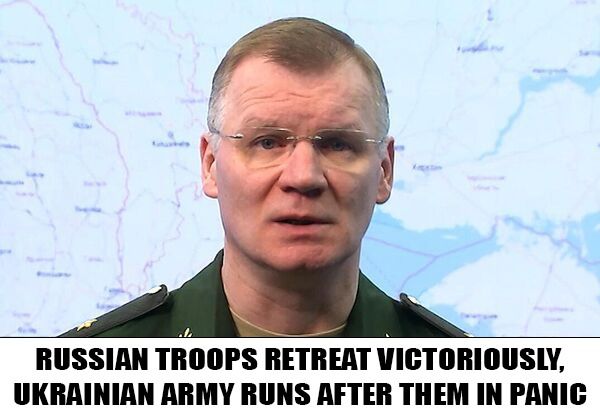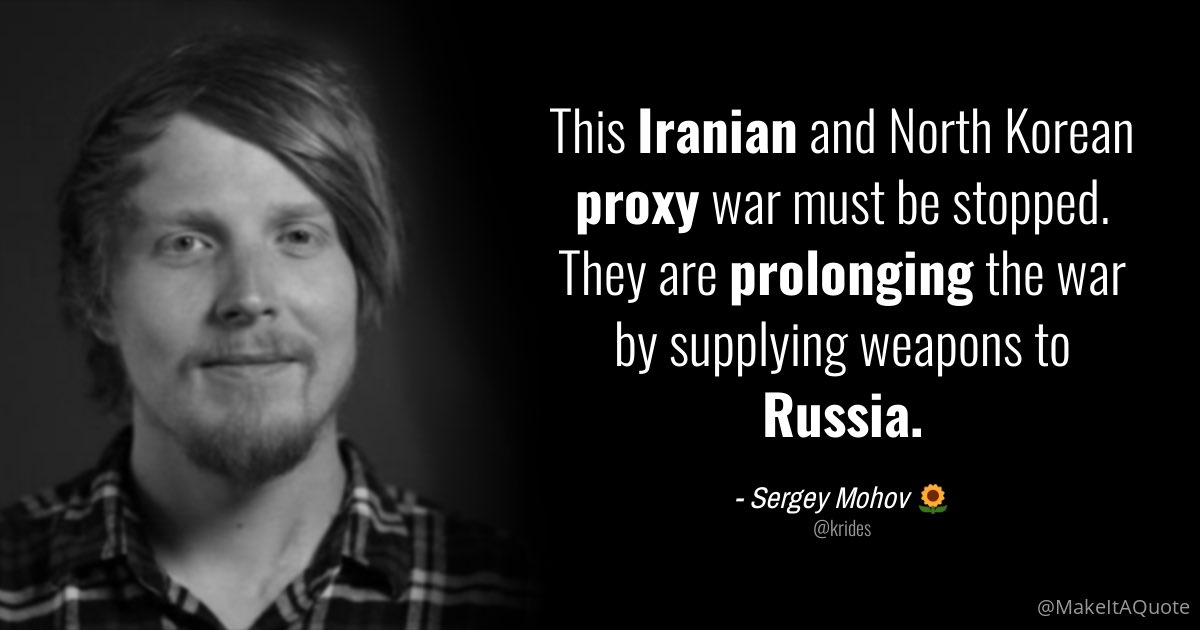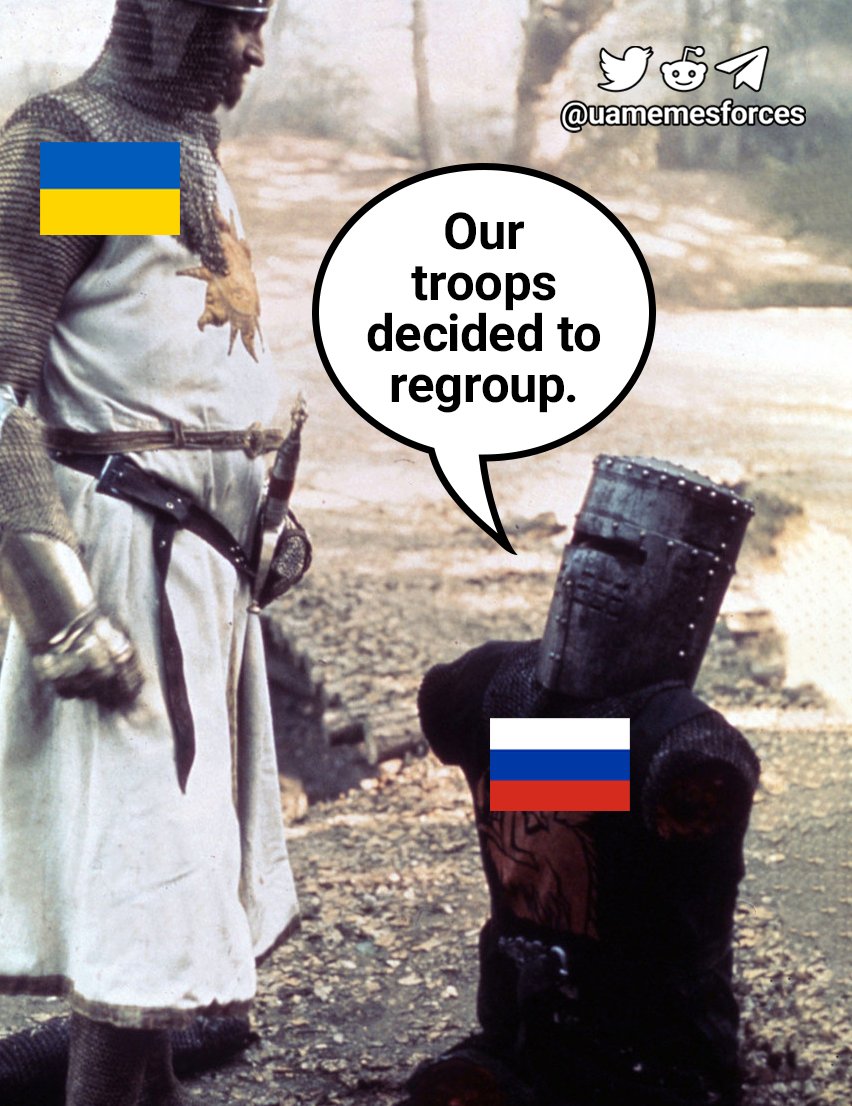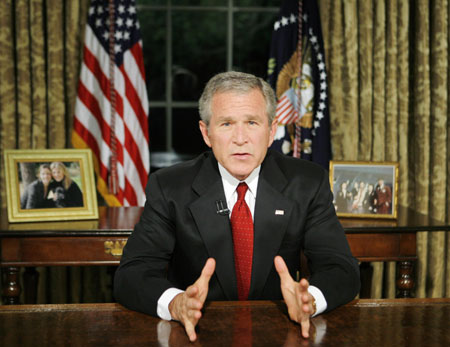Mopologist William Schryver Continues His Descent Into Madness
- Moksha
- God
- Posts: 7915
- Joined: Wed Oct 28, 2020 3:13 am
- Location: Koloburbia
Re: Mopologist William Schryver Continues His Descent Into Madness
I think Putin's game plan was to finish off Ukraine and then make battle on the glorious Nation of Kazakhstan.
Cry Heaven and let loose the Penguins of Peace
-
Doctor CamNC4Me
- God
- Posts: 9720
- Joined: Wed Oct 28, 2020 2:04 am
Re: Mopologist William Schryver Continues His Descent Into Madness
I thought we learned that lesson in Europe ~90 years ago?Chap wrote: ↑Sat Sep 10, 2022 9:07 pmMy bolding. The question is, is it safer to stand up to Putin now, or let him do what he wants to Ukraine, and hope that this is his "last territorial demand"?honorentheos wrote: ↑Sat Sep 10, 2022 7:52 pmThe question should take the form of "What are the likely consequences of taking this action compared to other actions including taking no action?" There are numerous risks that come with confronting Putin. But failure to do so increases the risks of other actions. An enabled Putin who successfully shows the West will stand aside when a nuclear power invades a neighbor will face a future where China, North Korea, Israel, and Saudi Arabia will adjust their future decisions accordingly.
- Doc
- Everybody Wang Chung
- God
- Posts: 2636
- Joined: Wed Oct 28, 2020 1:52 am
Re: Mopologist William Schryver Continues His Descent Into Madness
After months of gently massaging Putin’s backside, William Schryver’s Twitter account is now getting bombarded with hilarious comments and memes.








"I'm on paid sabbatical from BYU in exchange for my promise to use this time to finish two books."
Daniel C. Peterson, 2014
Daniel C. Peterson, 2014
-
Doctor CamNC4Me
- God
- Posts: 9720
- Joined: Wed Oct 28, 2020 2:04 am
- Everybody Wang Chung
- God
- Posts: 2636
- Joined: Wed Oct 28, 2020 1:52 am
Re: Mopologist William Schryver Continues His Descent Into Madness
Incredible.Doctor CamNC4Me wrote: ↑Sat Sep 10, 2022 11:31 pmWeird that WS is still sourcing his propaganda from these guys:

Is William okay? Can someone who knows him personally reach out to him for a quick wellness check?
William Schryver actually tweeted this last night:
https://mobile.Twitter.com/imetatronink ... Tin8QrAAAAWill Schryver
@imetatronink
·
Sep 9
Here at the end of the day the reality of an overwhelming and devastatingly punishing Russian victory is even more apparent than it was 10 hours ago.
The Russian-held part of Balakleya was never taken; neither Kupyansk nor Izyum are threatened; AFU casualties are catastrophic.
"I'm on paid sabbatical from BYU in exchange for my promise to use this time to finish two books."
Daniel C. Peterson, 2014
Daniel C. Peterson, 2014
- Symmachus
- Valiant A
- Posts: 177
- Joined: Sat Feb 20, 2021 3:53 pm
- Location: Unceded Lamanite Land
Re: Mopologist William Schryver Continues His Descent Into Madness
Anyone who has followed what I have said can see that I have been consistent for a couple of weeks now. Nearly every single reply has been some variation on "the Russians are to blame—what kind of Ukraine-genocider are you? You're duped by Russian propaganda." I didn't realize that people actually did grasp what I was saying and just made a conscious choice to ignore it. In any case, "I'm not saying that; I'm saying this" ten times and then concluding that people just aren't getting it because they keep turning it into a question of whether Russians are right/good vs. wrong/bad isn't an ad hominem argument. It is an exasperated description of what is happening.honorentheos wrote: ↑Sat Sep 10, 2022 7:52 pmIt may be good to be careful when arguing that others are engaging in ad hominem dismissals when also making points only a few posts up essentially saying that ones point is simple yet apparently, "too difficult to grasp, no doubt because it doesn't flatter one's sense of justice," and go on to essentially dismiss every comment made as a failure of the poster to follow what you were saying.
What I have said: our Ukraine policy seems confused and keeps escalating with no clear goal, and the people who are running it and advising on it in the government and media have a poor record which has resulted in major screw-ups with tiny countries—is it wise to continue this when a nuclear power is involved? I don't think that means that I have to come up with a new theory for how the international system needs to operate before I can discuss my concerns.Regardless, there are a few points I made that you may or may not dismiss for whatever cause, but are hardly based on attacking your person so much as the issues the dismissal on your part left unresolved.
That's basically what I have been arguing. In asking for what people think our policy is and so on, I have largely been offered explanations about how bad Russia is until the most recent couple of posts (a new day dawns and fresh light bursts forth). No matter how compelling or what truth they contain, they are part of propaganda war to win public support for involvement in Ukraine. I don't think that this kind of thinking should be the basis for our policy there. So in other words, if you've been following (and maybe you haven't, because I'm responding to three or four people at a time), I am not equating propaganda and the policy. I have been trying, with great difficulty but as gently as I can, to get my interlocutors to disentangle them. You and I seem to agree on this.For example, it is hardly ad hominem to note that equating public propoganda to policy itself is fundamentally flawed.
I have said that basing policy on the emotionalism offered up to me would be imprudent. Do you disagree? Chap is a prudent person on this board, but I don't think the view he has is a prudent one. If your read what I say literally and not in the mouth of whatever caricature you have of me, you'll see that it's a judgment call of a position, not an insult of a person.If I ascribe that to cynicism, call it the equivalent to ascribing others response to a lack of prudence or understanding.
I decided to ignore your interest in turning this into a discussion of the proper international system the minute you used the 19th century as the evil bad time of nationalism that was just so horrible. I don't think we should go back to that world system, it is not at risk of happening any time soon anyway, and it is not even possible, because the material circumstances are so vastly different. But since you think it was such an evil time and so unworthy of respect, tell me, how many wars were fought among the nationalist states after the Congress of Vienna in 1815 until 1910? Which was the worst of them? It was hardly century of great power conflict. After Napoleon, the practice of states being open and clear about their interests and aims led to a much more stable world with smaller scale wars than the century after that where state competition was embedded into larger moral conflicts.You tell me which century you think was better on the atrocity front. I see in an upcoming Foreign Affairs that this is a war between "democracy and nihilism," so I guess we in the US are sticking with the plan of the last century. Anyway, the 19th century system became very dangerous when the material circumstances changed, especially the economic and technological circumstances, which had put too much a strain on it by 1914. But I don't think at all that it was because nations had interests and pursued them—they still do!We have left the question on the table as to what you imagine to be the world order you prefer over the one being sought though current US support of Ukraine. And that remains either ignored or dismissed as unnecessary.
I wonder—and I say that sincerely, meaning I'm just not sure—whether the system from the 1990s onward, where the US was the default hegemon and sole superpower, can also survive the economic and technological transformations of the past decades and the strains it is imposing on the post Cold War arrangement; and I think we should be conscious about the serious dangers that could result from trying to maintain a 1992 world in 2022. North Korea is tiny country and economically insignificant, and by all measures its nuclear program, while shocking to exist in the first place, really should be beyond the power of the North Koreans to maintain, given their zombie economy. But I learned from listening to a panel at the Billington Cyber Security Conference the other day that they are able to bring in more the $2 billion annually from cyber attacks, and that that their nuclear program only costs about $700 million per year, which means that they can fund it through Cyber theft alone and still have a lot left over. Now, that's North Korea. We are approaching Russia like they're the Balkans from 1994: sanctions and NATO support (if not yet troops). And that was a tough one for NATO to coordinate. I just don't see the alignment of tactic to task because these tactics probably just don't work like they used to. I don't know what the world system should be like, but we should consider the very real possible that the 1990s were a fluke at the moment and not guidebook for the future.
Emotional manipulation again.This is a luxury those actually engaged in the matter cannot afford, yet pointing this out need also not be addressed apparently.
What is cynical is that you don't distinguish between the legality of something and the morality of something but treat the satisfaction of the former as an instance of the latter. Now, my position is that we can't make the morality a primary concern because it perpetuates an endless cycle that only makes things worse. Vengeance always feels morally right, but that's also true for the other side. We don't want the atrocities and they will have to be addressed at some point in a way that does as much justice to the victims as possible, but that option is not available right now. If we make vengeance the goal in itself, we will never be satisfied, it will redound back to us as we escalate, and we won't be able to establish the circumstances in which redress to victims will be possible.Understanding how the Fourth Geneva Convention pertains to matter of civilian populations and infrastructure support is entirely essential to properly framing the matter of the Ukraine having shut down the canal used as an example of Ukrainian animosity towards ethnic Russian. If that appears the epitome of cynicism to you, the issue appears to be with what you believe "ought not to be" compared to how they are out of necessity.
I'm using the canal issue as an exemplum of what happens when you do that, because a lot of Russians are supportive of the invasion because of things like this. It is a bad thing to do to people. Blowing it up in the first few days of the invasion therefore made the invasion seem like a moral act. I don't think it is wise to take the same tack.
But your response is that doing the canal issues isn't even question of morality, because you accord written statutes a higher status than morality. That kind of value hierarchy can justify almost any atrocity. To me, the purpose of law (not as statute but as a reflection of morality) is to encapsulate and particularize the moral order. So when you use the instruments of law in service to something other than the moral order, the moral order is subverted and the law perverted. An assumption that statutes are all that law is is a positivist interpretation of law, and I think it is ultimately a cynical view of law because it can be used to provide cover for anything. Since you do that here, I call your reply here cynical.
Thank you.I offered answers to your quiz in the previous thread but I'll repost here in good faith that you will reciprocate.
I am just not convinced that Russia has 19th century nationalistic ambitions, and think that there are security concerns, some genuine and some opportunistic, tied to the imperfect security architecture in eastern Europe and central Asia after 1992. But forgive me if I don't see the goal here. What does "will not be made hostage" actually mean? I note that it is a metaphor, so what does this phrase symbolize? Does it mean our goal is to expel Russian forces from Ukraine? Does it mean that our goal is to destroy the Putinist regime? Does it mean that we just want to inflict pain on Russia? Does it mean we want to break Russia up into different states? Does it mean that we want Russia to lose territory? In practical terms, it's so hard to know what this means, since it could mean anything. Each of these, of course, have subsidiary questions.The clarity in our position is that Russia violated Ukraine's national sovereignty when they invaded and we have an interest in making it clear the world will not be held hostage to a nuclear power resorting to 19th century nationalistic ambitions."
And how do we "make it clear" (another metaphor)? Will we conduct a proxy war indefinitely? Will we just keep escalating? How will we know that it has been made clear? If know when something has been made clear, then we won't really be able to make it clear.
I agree with that reframing and that it is better to respond than not in the abstract. In particulars, have the sanctions mattered? Maybe too soon to tell, but they seem only to have boomeranged, yet their chief purpose is the carrot of ending them in negotiations, so probably good to keep them. The weapons are a risky game. How long do you think our response should be "Just keep giving them weapons and money, logistical support and intelligence?" I can easily imagine scenarios where it would be better to stop doing that. As Kotkin say, Putin has ways that can really hurt us. So we should be able to talk about the limits of the support and what would trigger its curtailment.Is the goal realistic? The question should take the form of "What are the likely consequences of taking this action compared to other actions including taking no action?" There are numerous risks that come with confronting Putin. But failure to do so increases the risks of other actions.
Man, this looks really complicated, though also a bit like something one hears from MSNBC contributor who used to head some intelligence agency or other, and not everyone wants a US-dominated "global community," which they see as a synonym for US hegemony. Is the argument that if we get the Ukrainians to punish Russia, we won't have to worry anymore about China and Taiwan, or will we just have to duplicate it there? If so, why does Ukraine matter all? And are you under the impression that India is going to invade Pakistan or vice versa? I think they just have a border dispute in Kashmir. Bad, but I don't see what effect Ukraine will have on that one way or the other—unless we continue to alienate India for not doing our bidding.An enabled Putin who successfully shows the West will stand aside when a nuclear power invades a neighbor will face a future where China, North Korea, Israel, and Saudi Arabia will adjust their future decisions accordingly. What would the consequences of this inaction mean for the India/Pakistan disputes and tensions? How will nations behave when nationalist powers with diminished commitments to a global community face climate change driven migrations and catastrophes?
At any rate, do you know if the US government has a policy that addresses all of this? If so, could you point to where I could learn about it? All I have heard is that Russians are committing atrocities and must be stopped, and that Putin controls gas prices. The closest I get out of the government on the level of strategy is that the goal is just to "weaken" Russia.
You put this out there like it is unreasonable to ask. This is one of the biggest problems with US foreign policy: no well defined objectives.How will we know if the policies succeeded in their aims?
Before you give your answer in the following sentence, let me see if I understand so far: our goal is, something about Russian getting a message, but not just Russia, also the rest of the world, and especially any nationalists, which are for some reason a priori dangerous.
So you think this a question of deterrence. I wonder how we measure whether or not we have successfully deterred whatever it is we are deterring, particularly in the face of the absurdity of that situation: interfering in a foreign country as an object lesson to another country for having interfered there first. If the goal is deterrence, it is kind of illogical if you think about it: "don't interfere in that little country—that's wrong—or we will interfere in it, too." The case of Vietnam is interesting because it does not appear to have had any deterrent effect. On might argue that it had the exact opposite effect on the North Vietnamese. In using foreign interference in a deterrence strategy against foreign interference, perhaps the lesson we should draw from Vietnam is that we did not deter those guys hard enough: we should have gone nuclear to deter them from their attempt to undermine the sovereignty of South Vietnam. Perhaps MacArthur was right about nuking China over Korea too. That would certainly have deterred them. Anyway, despite all the blood and treasure of Vietnam, the Soviets were not deterred from interfering all over the place in the 1970s, culminating in the Afghanistan invasion (which admittedly they sort of bungled into). It doesn't have a great track record as tactic. Maybe it wasn't billed to the public as a deterrence project, but surely it was: the domino theory and containment and all that.
Classical deterrence has an effect; that means not that you use another country in a proxy war, but that you make your own country and its allies so goddamn powerful that it will mean the end of the other guy if he tries anything. It has worked before for the US and NATO in its relations with the Soviet Union. So, if the US is pouring its military wealth into Ukraine to deter Russian aggression—just assuming that this is what it is all about—presumably it will work best if we intertwine our own security interests with Ukraine by becoming formal allies, so that an attack on Ukraine is an attack on US (that's what NATO does). And yet, we have always refrained from making any formal military alliance. It's almost as if we want to have a deterrence policy but don't actually want to be required to carry through with it; it's like we want to have our crack and snort it too.
Also, I notice that the agency of the Ukrainians melts away under a theory of deterrence. What if the Ukrainians decide they are willing to let go of claims over the Crimea and the Donbass region? Do we get to use them still in our deterrence strategy against their will? It's a question that has come up in the past few days due to an article in Foreign Affairs by Fiona Hill, no Putinist:
She does not say which countries those were. The article continues in the next sentence:Fiona Hill wrote:According to multiple former senior U.S. officials we spoke with, in April 2022, Russian and Ukrainian negotiators appeared to have tentatively agreed on the outlines of a negotiated interim settlement: Russia would withdraw to its position on February 23, when it controlled part of the Donbas region and all of Crimea, and in exchange, Ukraine would promise not to seek NATO membership and instead receive security guarantees from a number of countries.
Maybe that is the goal. But I note that Lavrov's comments are from July, three months after April. What happened in April though? Why did they fall through. She does not say. The reason this is causing a stir is because back in May, Ukrainska Pravda, not a publication friendly to Russia, reported that the the talks were scuttled by Boris Johnson:But as Russian Foreign Minister Sergey Lavrov stated in a July interview with his country’s state media, this compromise is no longer an option. Even giving Russia all of the Donbas is not enough. “Now the geography is different,” Lavrov asserted, in describing Russia’s short-term military aims. “It’s also Kherson and the Zaporizhzhya regions and a number of other territories.” The goal is not negotiation, but Ukrainian capitulation.
That's from early May. So do you think that the deterrence strategy should override Ukrainian self-determination and supersede their sovereignty? Fiona Hill clearly thinks that's fine, and in her article she excoriates "the Global South" and developing countries for putting the needs of their food supply (much of which relies on Russia) above a document as sacred as the UN Charter. Given the view of moral authority of statutes you've assumed, I wonder if you agree more with her or with them:According Ukrainska Pravda sources close to Zelenskyy, the Prime Minister of the United Kingdom Boris Johnson, who appeared in the capital almost without warning, brought two simple messages.
The first is that Putin is a war criminal, he should be pressured, not negotiated with.
And the second is that even if Ukraine is ready to sign some agreements on guarantees with Putin, they are not.
Johnson’s position was that the collective West, which back in February had suggested Zelenskyy should surrender and flee, now felt that Putin was not really as powerful as they had previously imagined, and that here was a chance to "press him."
Apparently people need to eat. Well, I wondered while reading that when she was going to advocate that the US try to address their concerns and beat Putin at his own game. If he is relying on support form those countries, both economically and morally, it seems like a good idea to try to win them instead to our cause, doesn't it? Is there no way to sell American grain to them instead of Russian? How about guarantees from Ukraine to provide those countries with those materials? Ah, we come to a new problem. So the Russians agree to let Ukrainian grain shipments through the black sea in order for sale in markets in these developing/global south countries; they claim that most is going to the EU. According to EuroNews, it's closer to 40%, not including Turkey (because Turkey processes the grain and then sells it from there, so hard to track final destinations). Now, we can have propaganda wars about whether he is spreading disinformation by saying "most," but 40% is a lot grain to go the EU when the combined populations of the global south/developing countries amount to billions of people. Ukraine as a whole exports enough grain to feed 400 million per year. So if these figures hold for over a year, to the entire developing/global south that back Putin, Ukraine would feed 240 million per year against 160 million in the European Union alone. Whatever the numbers, this isn't exactly indicative of great strategy. Instead, we just get Fiona Hill reprimanding all these countries for placing the food needs of the population over the UN Charter. That'll show 'em.Fiona HIll wrote:For much of the global South, concerns focus on fuel, food, fertilizer, and also arms. These countries are apparently not concerned that Russia has violated the UN Charter and international law by unleashing an unprovoked attack on a neighbor’s territory.
Anyway, my last question was about gauging the failure or success of a policy. I don't think that is unreasonable: assuming it is the best policy option available to us, are we expected to just go on forever doing this in the name of deterrence?
That's your answer to that question? This reminds me of the War on Terror: if you asked what it was all about it and how we would know we've won, you were accused of siding with or abetting the terrorists simply for asking for clarification.Every day you have the luxury of being cynical about it on the internet they are succeeding.


Last edited by Symmachus on Sun Sep 11, 2022 2:14 am, edited 1 time in total.
(who/whom)
"As to any slivers of light or any particles of darkness of the past, we forget about them."
—B. Redd McConkie
"As to any slivers of light or any particles of darkness of the past, we forget about them."
—B. Redd McConkie
-
Doctor CamNC4Me
- God
- Posts: 9720
- Joined: Wed Oct 28, 2020 2:04 am
Re: Mopologist William Schryver Continues His Descent Into Madness
For real. A good example of the unreliability of shill-sourced intel is that of the Russian-installed collaborator in the Kherson region, Kirill Stremousov, who said in a telephone interview that “everything in Kherson was under control” and claimed that Ukrainian spies and saboteurs were recently killed.Everybody Wang Chung wrote: ↑Sun Sep 11, 2022 12:27 amIncredible.Doctor CamNC4Me wrote: ↑Sat Sep 10, 2022 11:31 pmWeird that WS is still sourcing his propaganda from these guys:

Is William okay? Can someone who knows him personally reach out to him for a quick wellness check?
William Schryver actually tweeted this last night:
https://mobile.Twitter.com/imetatronink ... Tin8QrAAAAWill Schryver
@imetatronink
·
Sep 9
Here at the end of the day the reality of an overwhelming and devastatingly punishing Russian victory is even more apparent than it was 10 hours ago.
The Russian-held part of Balakleya was never taken; neither Kupyansk nor Izyum are threatened; AFU casualties are catastrophic.
However, Stremousov left Kherson last week and was located in Voronezh, a Russian city ~600 miles from Kherson.
Perhaps spies and saboteurs have been executed, and perhaps things are going swimmingly in Kherson, but wouldn’t it give even the most shilliest of shills pause that the source of that good news is providing it safely, 600 miles away?
- Doc
- Gadianton
- God
- Posts: 5470
- Joined: Sun Oct 25, 2020 11:56 pm
- Location: Elsewhere
Re: Mopologist William Schryver Continues His Descent Into Madness
I dropped by to ask Will why he's calling it a war when Putin says it's a special operation, and he banned me within a minute. LOL! I think he broke DCP's record. What a snowflake eh?
We can't take farmers and take all their people and send them back because they don't have maybe what they're supposed to have. They get rid of some of the people who have been there for 25 years and they work great and then you throw them out and they're replaced by criminals.
- Dr Moore
- Endowed Chair of Historical Innovation
- Posts: 1889
- Joined: Mon Oct 26, 2020 2:16 pm
- Location: Cassius University
- Everybody Wang Chung
- God
- Posts: 2636
- Joined: Wed Oct 28, 2020 1:52 am
Re: Mopologist William Schryver Continues His Descent Into Madness
William,
I have a way for you to get out of this sticky situation and save face.
Just announce today that your are a Russian parody account and that since last year you have been trolling Russia with your over the top posts praising everything Russian and Putin.
Simple.
I have a way for you to get out of this sticky situation and save face.
Just announce today that your are a Russian parody account and that since last year you have been trolling Russia with your over the top posts praising everything Russian and Putin.
Simple.
"I'm on paid sabbatical from BYU in exchange for my promise to use this time to finish two books."
Daniel C. Peterson, 2014
Daniel C. Peterson, 2014